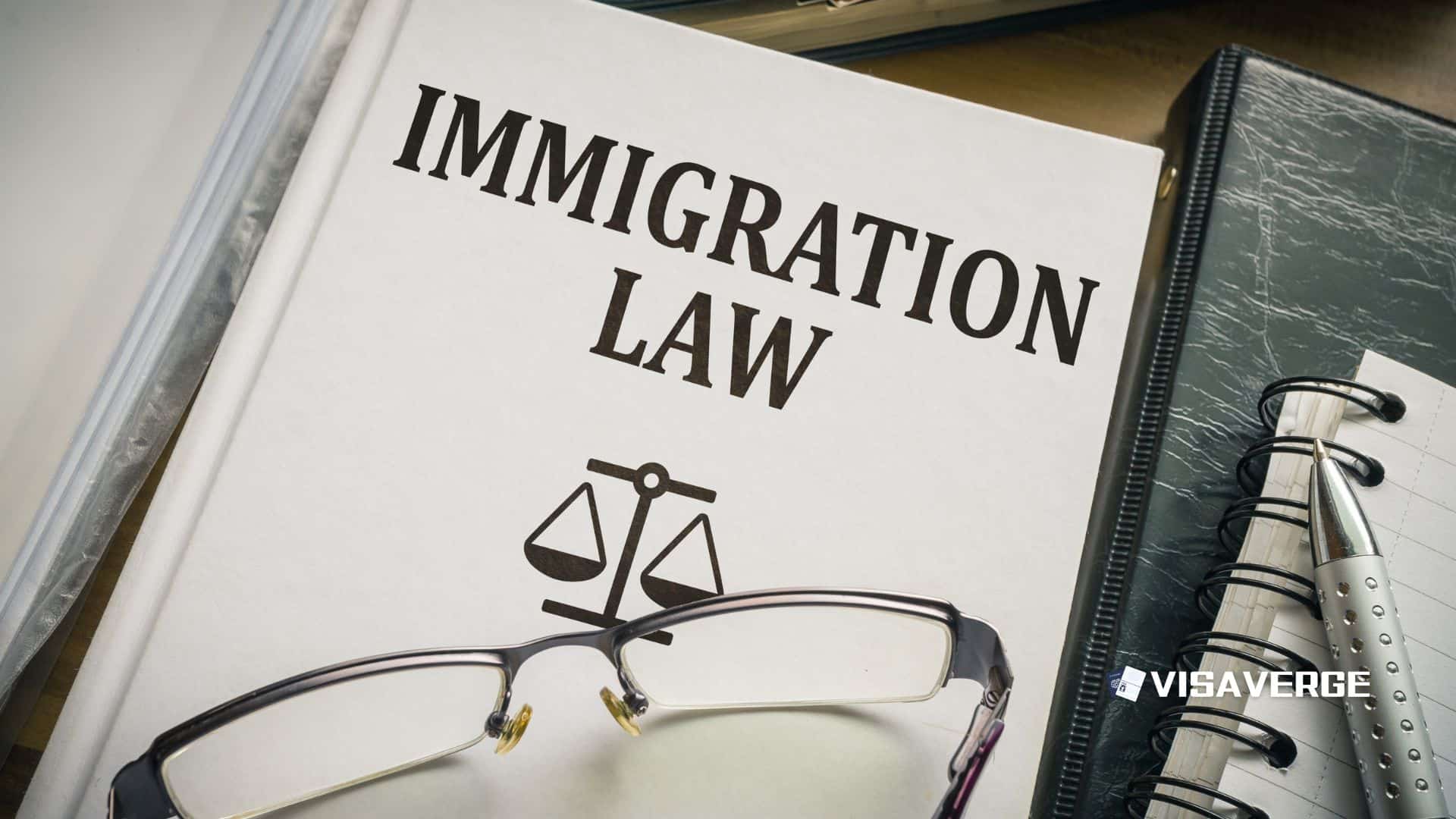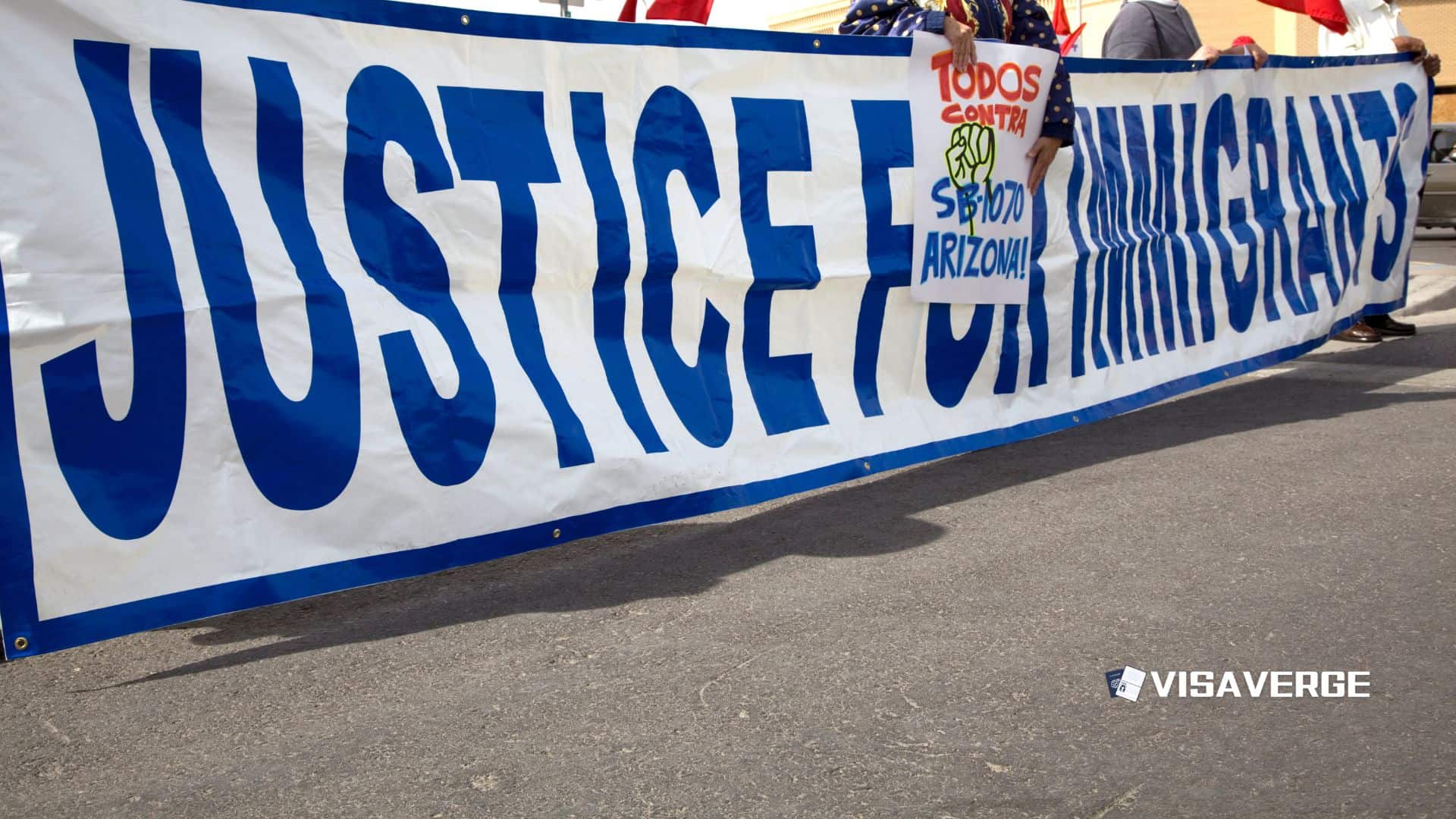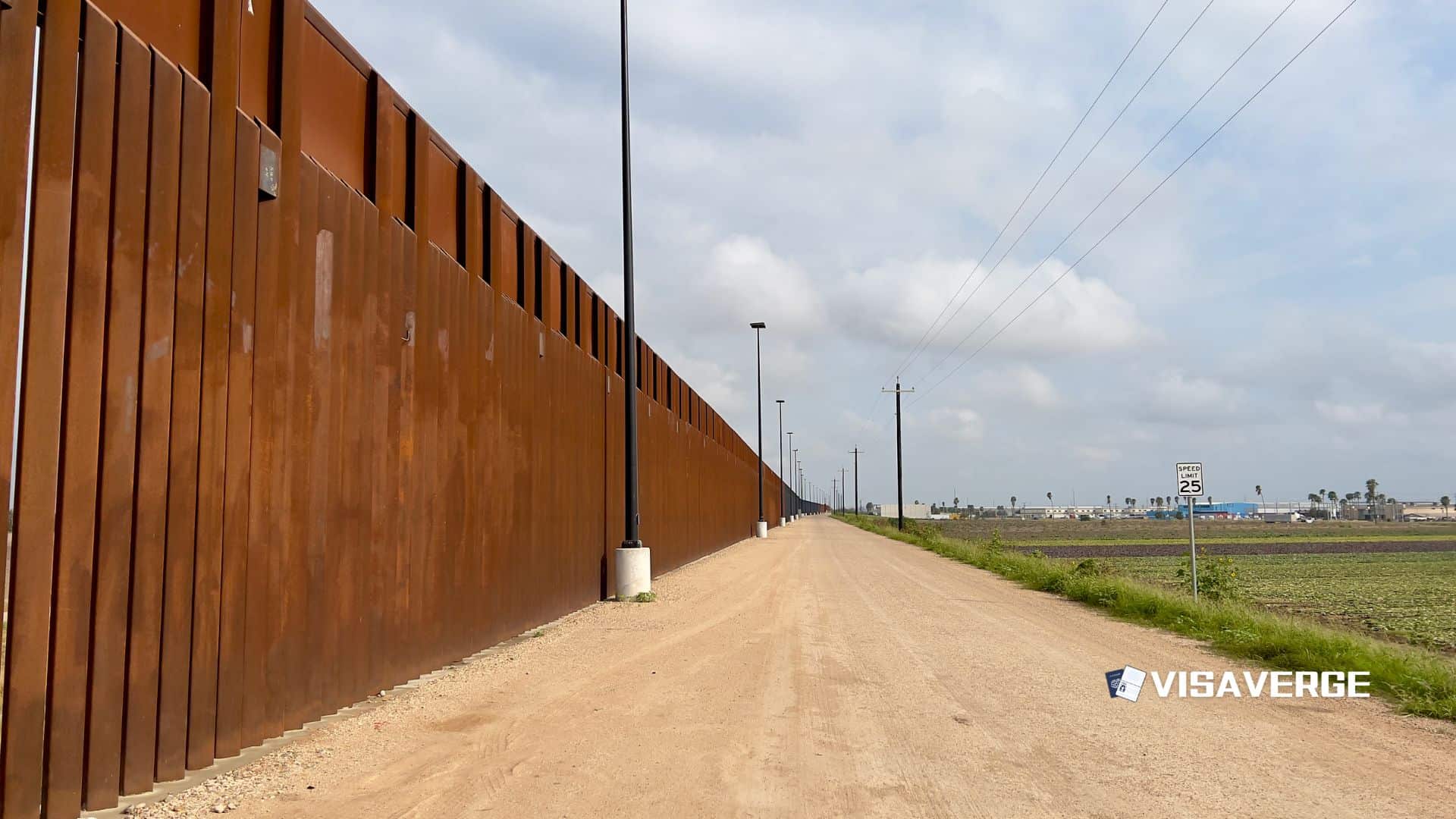Key Takeaways
• TPS for Venezuelans ended April 3, 2025, after Supreme Court approved Trump administration plan.
• Thousands of Venezuelan immigrants in Chicago lost work permits and face deportation risks.
• Immigrant groups like Resurrection Project offer legal help; protests continue amid increased enforcement.
Venezuelan Immigrants in Chicago Face Uncertainty After Loss of Temporary Protected Status
Thousands of Venezuelan immigrants in Chicago are now living with deep fear and uncertainty after the U.S. Department of Homeland Security (DHS) ended Temporary Protected Status (TPS) for Venezuelan nationals. This change, which took effect on April 3, 2025, has left many people without legal protection from deportation and without the right to work legally in the United States 🇺🇸. The decision has caused widespread anxiety, increased immigration enforcement, and sparked protests across the city.

Below is a detailed look at what happened, why it matters, and what it means for Venezuelan immigrants, their families, and the wider Chicago community.
Who, What, When, Where, and Why: The Key Facts
On June 20, 2025, the U.S. Department of Homeland Security, led by Secretary Kristi Noem, officially terminated TPS for Venezuelan nationals. This decision followed a Supreme Court ruling in May 2025 that allowed the Trump administration’s plan to end TPS for Venezuelans to move forward. The ruling lifted a previous court order that had blocked the termination.
What does this mean? Thousands of Venezuelan immigrants in Chicago, who had been living and working legally under TPS, lost their legal status and work permits. They now face the risk of deportation unless they have another form of legal protection, such as asylum.
Why did this happen? The Trump administration argued that conditions in Venezuela had improved enough to end TPS, while others disagreed, pointing to ongoing political and economic problems in Venezuela. The Supreme Court’s decision gave the green light to end TPS, and DHS acted quickly to implement the change.
Where is this happening? While the policy affects Venezuelan immigrants across the United States 🇺🇸, Chicago is home to thousands of Venezuelans who are now directly impacted.
When did it happen? The official end date for TPS protections was April 3, 2025, but the effects are being felt most strongly now, as work permits expire and enforcement actions increase.
Understanding Temporary Protected Status (TPS)
Temporary Protected Status, or TPS, is a special immigration program that allows people from certain countries to live and work in the United States 🇺🇸 for a limited time. TPS is usually given to people from countries facing war, natural disasters, or other dangerous conditions that make it unsafe to return home.
Venezuela was granted TPS because of ongoing political instability, economic collapse, and a humanitarian crisis. The Biden administration had extended these protections, but the Trump administration moved to end them, arguing that Venezuela was safer. Legal battles followed, but the Supreme Court’s May 2025 decision allowed the termination to go ahead.
For more information about TPS and current eligibility, you can visit the official USCIS TPS for Venezuela page.
How Many People Are Affected?
- About 9,000 Venezuelan immigrants in Illinois have received help with TPS and asylum applications from groups like the Resurrection Project.
- Thousands of Venezuelans in Chicago are now at risk of deportation because they lost TPS protections.
- Exact numbers of deportations or arrests since the change are not available, but reports say that immigration enforcement actions, including raids, have increased in recent weeks.
Personal Stories: Fear and Uncertainty in the Community
For many Venezuelan immigrants, the end of TPS has brought back the same fear and uncertainty they felt when they left Venezuela. Malen, a Venezuelan immigrant living in Chicago, shared that she fled her home country to escape violence and instability. Now, she faces the possibility of being forced to leave the United States 🇺🇸, a place where she has tried to build a new life.
Community organizations report that many Venezuelans are afraid to go to work, send their children to school, or even leave their homes. The fear of being stopped by immigration officers or caught in a raid is very real.
Increased Immigration Enforcement and Community Response
Since the end of TPS, Chicago has seen a rise in immigration enforcement actions. Reports of raids and arrests have spread quickly through the Venezuelan community, causing panic and leading some people to avoid public places.
Community groups like the Resurrection Project have stepped up to provide legal help, information, and emotional support. They are helping people understand their rights and options, and they are organizing protests to call for the return of TPS protections.
Erendira Rendon, Vice President for Immigrant Justice at the Resurrection Project, warns that all Venezuelans who applied for TPS or asylum in 2023 are now at risk of deportation if they do not have another legal status.
Political and Legal Perspectives
The end of TPS for Venezuelans has sparked strong opinions from different sides:
- Secretary of Homeland Security Kristi Noem: She implemented the termination of TPS for Venezuelans, following the Supreme Court’s decision.
- Immigrant advocates: Groups like the Resurrection Project argue that conditions in Venezuela are still unsafe and that ending TPS puts people at risk.
- Local politicians: Some, like Chuck Hernandez, Chair of the Chicago Republican Party, oppose TPS and other temporary immigration programs. They believe these programs encourage illegal immigration and should be ended.
- Legal experts: Many lawyers and immigration experts say that ending TPS for Venezuelans is dangerous because it forces people to return to a country that is still facing serious problems.
What Happens Next for Venezuelan Immigrants?
Losing TPS has immediate and serious effects on Venezuelan immigrants in Chicago:
- Loss of Legal Status: Without TPS, people lose their right to live and work in the United States 🇺🇸. Their work permits, which are tied to TPS, expire.
- Risk of Deportation: Anyone without another form of legal protection, like asylum, can be placed in removal (deportation) proceedings.
- Limited Legal Options: Some may qualify for asylum or other forms of relief, but these processes are complicated, slow, and often require legal help.
- Disrupted Lives: Many Venezuelans have lived in Chicago for years. They have jobs, homes, and children in school. Losing TPS disrupts every part of their lives.
Step-by-Step: What Should Affected Venezuelans Do?
If you or someone you know is affected by the end of TPS, here are the steps to consider:
- Check Your Status: Find out if you have any other legal status or pending applications (such as asylum).
- Seek Legal Help: Contact a trusted immigration lawyer or a local legal aid group. Organizations like the Resurrection Project can help with legal advice and applications.
- Know Your Rights: Learn what to do if you are stopped by immigration officers. Many groups offer “Know Your Rights” workshops and materials.
- Stay Informed: Follow updates from official sources like USCIS and local immigrant organizations.
- Consider Other Options: If you are eligible, apply for asylum or other forms of immigration relief. These processes can be difficult, but they may offer protection.
Community Support and Resources
Several organizations in Chicago are working to support Venezuelan immigrants during this difficult time:
- The Resurrection Project: Offers legal help, information sessions, and support for TPS and asylum applications.
- Local Legal Aid Groups: Many provide free or low-cost legal services to immigrants facing deportation.
- Community Centers and Churches: Often serve as safe spaces and sources of information for immigrants.
For official information about TPS and other immigration programs, visit the USCIS TPS for Venezuela page.
Policy Implications: What Does This Mean for the Future?
The end of TPS for Venezuelans has several important effects:
- No Path to Permanent Residency: TPS does not lead to a green card or citizenship. Once it ends, people have few options to stay legally.
- Economic Impact: Many Venezuelan immigrants work in important jobs in Chicago. Losing legal status means they can no longer work legally, which hurts both families and local businesses.
- Community Tension: Increased enforcement and fear of deportation have led to protests and calls for action from immigrant groups and their supporters.
- Political Debate: The decision has deepened political divisions, with some leaders calling for more protections and others pushing for stricter immigration controls.
Advocacy and Calls for Change
Immigrant advocacy groups are urging Congress and the Biden administration to restore TPS or create new protections for Venezuelan immigrants. They argue that conditions in Venezuela remain unsafe and that deporting people now would be inhumane.
Some lawmakers and community leaders have joined these calls, but as of June 2025, there are no official plans to bring back TPS or offer new protections. The future remains uncertain for thousands of Venezuelan immigrants in Chicago and across the United States 🇺🇸.
Analysis from VisaVerge.com suggests that unless new policies are introduced, many Venezuelan immigrants will remain in legal limbo, facing the constant threat of deportation and unable to work legally.
What Can Employers, Schools, and Service Providers Do?
The loss of TPS affects not only immigrants but also employers, schools, and service providers in Chicago:
- Employers: Must stop employing workers whose work permits have expired. This can disrupt businesses and lead to staff shortages.
- Schools: May see students suddenly missing classes if their families go into hiding or are deported.
- Healthcare and Social Services: Providers may need to help families dealing with trauma, fear, and sudden loss of income.
It is important for these groups to stay informed about the latest immigration policies and to connect affected individuals with legal and community resources.
Looking Ahead: What’s Next for Venezuelan Immigrants in Chicago?
The future for Venezuelan immigrants in Chicago is uncertain. While advocacy efforts continue, there are no guarantees that TPS will be restored or that new protections will be created soon. In the meantime, the community is organizing protests, seeking legal help, and supporting each other through a very difficult time.
Key Takeaways and Next Steps
- TPS for Venezuelans ended on April 3, 2025, following a Supreme Court decision and action by the U.S. Department of Homeland Security.
- Thousands of Venezuelan immigrants in Chicago lost legal status and work permits, putting them at risk of deportation.
- Community organizations are providing legal help and support, but options are limited and the future is uncertain.
- Advocacy continues for new protections, but no official plans have been announced as of June 2025.
- Affected individuals should seek legal advice, know their rights, and stay informed through official sources and trusted community groups.
For the most up-to-date information on TPS and other immigration programs, visit the USCIS TPS for Venezuela page.
If you or someone you know is affected by these changes, reach out to local legal aid organizations or community groups for help. Staying informed and connected is the best way to face the challenges ahead.
Learn Today
Temporary Protected Status (TPS) → A temporary immigration status allowing nationals from unsafe countries to live and work in the US legally.
Deportation → The formal removal of a foreign national from the United States due to immigration violations or loss of status.
Work Permit → An official document authorizing an immigrant to legally work in the United States during their authorized stay.
Asylum → Protection granted to individuals fleeing persecution, allowing them to stay legally in the United States.
Supreme Court → The highest US judicial body that interprets laws and makes decisions impacting immigration policy nationwide.
This Article in a Nutshell
Thousands of Venezuelan immigrants in Chicago lost Temporary Protected Status in April 2025. Facing deportation and job loss, many seek legal aid. Community groups organize protests, fearing unsafe conditions in Venezuela remain. The Supreme Court’s ruling enables enforcement, creating uncertainty and anxiety for families striving to build new lives in the US.
— By VisaVerge.com













